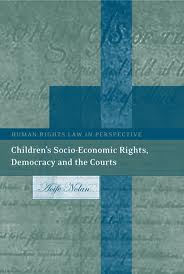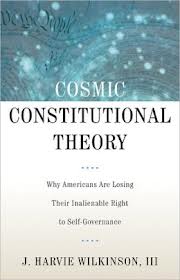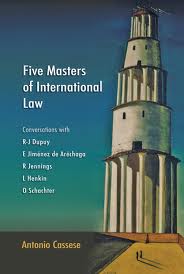 by David Erdos. New York: Oxford University Press, 2010. 272pp. Cloth $99.00. ISBN: 9780199557769.
by David Erdos. New York: Oxford University Press, 2010. 272pp. Cloth $99.00. ISBN: 9780199557769.Reviewed by David G. Barnum, Department of Political Science, DePaul University. Email: dbarnum [at] depaul.edu.
pp. 185-191
This medium-length but very impressive book undertakes to explain the adoption (and the timing of the adoption) of various types of "bills of rights" in three "Westminster-style democracies" – Canada, New Zealand and the United Kingdom – and the failure of a fourth such democracy – Australia – to follow suit. Erdos devotes limited attention to the experience of other countries, but his comparative observations are pertinent and insightful. In particular, the book includes a brief but quite detailed discussion (in its final chapter) of Israel's 1992 adoption of Basic Laws on human rights.
Erdos’s overriding purpose is to use the "national experiences" of the four countries on which he focuses as a vehicle for proposing "a new explanation for the deliberate adoption of a bill of rights in stable, advanced democracies" (pp.4-5). To achieve this purpose, he offers very useful chapter-long descriptive case studies of the genesis and adoption of some form of a bill of rights in Canada, New Zealand, and the United Kingdom, and the failure of the bill of rights project in Australia. More importantly, he seeks to comprehend these individual national experiences through the lens of what he calls a "postmaterialist trigger thesis," or PTT. The thesis is a two-part explanatory tool that argues that adoption of a bill of rights was secured in three countries "by the confluence of [1] the gradual development of background forces conducive to change (most notably the growth of a powerful postmaterialist rights constituency) and [2] a political trigger which [provided elite political actors with] an immediate rationale and impetus for [reform]" (p.5). Conversely, what was missing in the case of Australia – a country in which there also existed a "strong civil liberty and social equality constituency, clearly committed to securing a bill of rights" – was "the presence of a clear political trigger providing elites with an impetus for change" (p.8).
It is worth mentioning at the outset why the presence or absence of a "political trigger" is critical to Erdos' theory of bill of rights adoption in Westminster-style democracies. There are perhaps two main reasons. First, the deliberate adoption of a bill of rights will constitute (or at least will be perceived to constitute) a significant transfer of power from legislative and/or executive political elites to the judiciary. Since support for adoption of a bill of rights among "elite political actors" is essential, but since such actors "will usually recoil from such proposals," a "concrete trigger providing a clear and specific political rationale and impetus" for reform will be required (p.5). Second, while the democracies on which Erdos focuses all qualify as "post-[*186] materialist societies," they also have in common a "British-descended Westminster political culture, with its strong defence of parliamentary sovereignty and distrust of formalized rights provisions" (p.26). This distrust provides an additional compelling reason to identify the political trigger or triggers that lead, often after years or even decades of debate, to adoption of some form of a bill of rights. In addition, of course, it is plausible, as Erdos convincingly argues, that the nature of the political trigger will influence not only the adoption of a bill of rights but also both "the precise timing of change" and "the type of bill of rights adopted, including [both] its strength and, generally, its scope" (p.27).
 by David Nelken (ed). Farnham, Surrey, England: Ashgate, 2011. 228 pp. Cloth $104.95. ISBN: 9780754676812.
by David Nelken (ed). Farnham, Surrey, England: Ashgate, 2011. 228 pp. Cloth $104.95. ISBN: 9780754676812. by Stephen M. Engel. New York: Cambridge University Press. 406pages. $99.00 Cloth. ISBN: 9780521192958. $32.99. Paper. ISBN: 9780521153980.
by Stephen M. Engel. New York: Cambridge University Press. 406pages. $99.00 Cloth. ISBN: 9780521192958. $32.99. Paper. ISBN: 9780521153980. by Louis Fisher. Lawrence: University Press of Kansas, 2011. 358pp. Cloth $39.95. ISBN 9780700617982. Paper $24.95 ISBN 9780700617999.
by Louis Fisher. Lawrence: University Press of Kansas, 2011. 358pp. Cloth $39.95. ISBN 9780700617982. Paper $24.95 ISBN 9780700617999. by Richard L. Pacelle, Jr., Brett W. Curry, and Bryan W. Marshall. New York: Cambridge University Press, 2011. 278pp. Paper $27.99. ISBN: 9780521717717.
by Richard L. Pacelle, Jr., Brett W. Curry, and Bryan W. Marshall. New York: Cambridge University Press, 2011. 278pp. Paper $27.99. ISBN: 9780521717717. by Aoife Nolan. Oxford: Hart Publishing, 2011. 336 pp. Cloth $110.00. ISBN: 1841137693.
by Aoife Nolan. Oxford: Hart Publishing, 2011. 336 pp. Cloth $110.00. ISBN: 1841137693. by J. Harvie Wilkinson III. New York, NY: Oxford University Press, 2012. 161 pp. Hardcover $21.95. ISBN: 9780199846016.
by J. Harvie Wilkinson III. New York, NY: Oxford University Press, 2012. 161 pp. Hardcover $21.95. ISBN: 9780199846016. by Antonio Cassese. Oxford and Portland, OR: Hart Publishing, 2011. xix+286pp. Paper $40.00. ISBN: 9781849461207.
by Antonio Cassese. Oxford and Portland, OR: Hart Publishing, 2011. xix+286pp. Paper $40.00. ISBN: 9781849461207.  by Vernon Bogdanor. Oxford and Portland, OR: Hart Publishing, 2011. 162 pp. Cloth $40.00. ISBN: 9781849461580.
by Vernon Bogdanor. Oxford and Portland, OR: Hart Publishing, 2011. 162 pp. Cloth $40.00. ISBN: 9781849461580. by David Scheffer. Princeton and Oxford: Princeton University Press, 2012. 570pp. Cloth $35.00. ISBN: 9780691140155.
by David Scheffer. Princeton and Oxford: Princeton University Press, 2012. 570pp. Cloth $35.00. ISBN: 9780691140155.